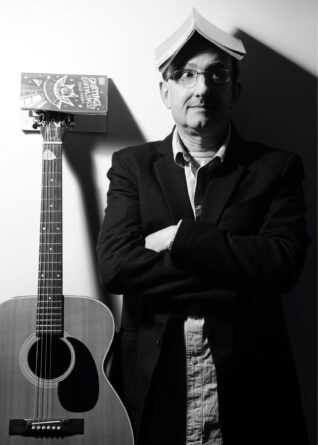 As a children’s poet, workshopper, writer-in-schools as well as an ambassador for National Poetry Day, I’m concerned with how Primary-aged children engage with poetry. For me, 3-11s should be having fun with poetic language as a form of quasi-play, taking ownership of language, being creative with words, and increasingly as they age and move through Primary school, using poetry as a highly resourceful and innovative medium to explore their own thoughts, experiences, emotions and the many facets of the Primary curriculum.
As a children’s poet, workshopper, writer-in-schools as well as an ambassador for National Poetry Day, I’m concerned with how Primary-aged children engage with poetry. For me, 3-11s should be having fun with poetic language as a form of quasi-play, taking ownership of language, being creative with words, and increasingly as they age and move through Primary school, using poetry as a highly resourceful and innovative medium to explore their own thoughts, experiences, emotions and the many facets of the Primary curriculum.
Nowadays, many Primary teachers frequently teach through topics, and will often use a range of poetic forms when they are teaching. They may do volcano shape poems, water cycle haikus, space cinquains, castle raps, or Victorian or Ancient Egyptian kennings. Children as well as teachers read and perform poems in weekly assemblies and in poetry galas. Increasingly, teachers are starting each school day with a poem and have found this to be very popular with their classes. Twenty years ago, as I first visited Primaries as a writer, teachers often told me that poetry was ‘scary’. In the last two decades, there’s been a massive sea change in Primary schools, and nowadays teachers inform me how it has radically revitalised their pedagogy and crucially, inspired and motivated the most reluctant readers and writers, often and especially boys. Can I repeat that discovery please? Poetry inspires reluctant readers and writers.
For a number of reasons, Secondary is a wholly different environment. English teachers teach English, which clearly includes at various stages in the curriculum, poetry. Yet how many Science teachers get their classes to write tankas about atoms? History teachers ask Yr 8 to write a free verse monologue about the Tudors? Music teachers ask Yr 9 pupils to set a Simon Armitage or Benjamin Zephaniah poem to music, with melody, harmonies and beats? I don’t know for sure, but having seen my daughters go through the Secondary system, and having also worked in a Secondary school as a tutor-teacher, and therefore witnessed a great many lessons across the curriculum, I’d guess very few. In the past, my daughters have often shown me their history or geography homework - ‘Make a poster informing people of…’. Hey, why not a poem instead? Or make a poster with a poem? But if I’m wrong here, please, please let me know, teachers! And actually, mathematicians and scientists and musicians can and do make great poets! Structures. Systems. Patterns. All present and prevalent in verse as well as maths/science/music and indeed other curricular areas. However, there is one poetic overspill at Secondary, for Drama teachers are known to use poems as stimuli for workshops and performances.
In the last 18 years, I’ve had many adults - (including Primary teachers) - inform me that poetry is difficult for them personally. Esoteric. Inaccessible. Boring. Not relevant to them. And a great many have told me that they have been put off poetry by the GCSE anthology - not by the teachers or the teaching of - but the process of having to analyse/deconstruct poetry in terms of form and content - linguistic devices / subtext/ meanings /interpretations etc. As a Primary poet I then logically ask if they enjoyed poetry whilst at Primary school, to which most have responded most positively, having loved writing poems, learning and also performing poems up to Yr 6.
Okay. So there’s the rub. The Primary cross-curricular approach (in an environment where individual teachers are responsible for delivering the whole curriculum) allows for an active, interactive and dynamic approach with pre-pubescent children aged 4-11. By the time adolescence kicks in, there’s a shift in the State system from KS2 to KS3, from Primary to Secondary. There it seems is a wholly different approach. No cross-curricular elements (except Drama as stated above), for starters, as subjects are compartmentalised. And arguably there will be an increasingly analytical approach to Literature, be it verse or prose fiction/non-fiction. It certainly will be 100% analytical by KS4, ie GCSE.
As a child I feared and detested poetry as we never enjoyed it or discussed or wrote it - our teachers made us learn it as homework so that we could repeat it parrot-fashion the following day, and then swiftly move on to something else. How meaningless is that? Moreover, how is that fostering a love of verse? I found the whole experience demoralising if not excruciating as I had a childhood stutter and so would struggle syllable by syllable to regurgitate the couplets in front of the rest of the class.
As a teenager I would never have admitted to liking poetry. I was only aware of liking one poem. ‘Horace’ by Terry Jones of Monty Python’s Flying Circus. It was absurd and irreverent: ‘Much to his mum and dad’s dismay / Horace ate himself one day. / He didn’t stop to say his Grace/ he just sat down and ate his face.’ What's not to like? I had a copy of it on my wall in my adolescent prison cell, aka boarding school study. For my English Literature O level I learnt 50 quotes from Shakespeare’s Macbeth and 50 from Chaucer’s The Prologue to the Canterbury Tales. We all did, or were meant to. Every single rhyming poem I have written since 1996, when I began writing poems for children, has been informed by the rhythms and the metrical patterns from those works of Chaucer and Shakespeare. I walk to them sometimes. They pulsate in my mind’s ear. Now I’m 60, and it’s 45 years on, and I still know a handful of those lines, and furthermore I now write poems for infants about ladybirds and woolly mammoths to the pulses of those poets. Moreover, I love deconstruction, all thanks to Quentin Edwards, my O level/A level teacher at the aforementioned institution. He wouldn’t tell us what Larkin meant in Whitsun Weddings, he’d ask us. And then he’d counter with his viewpoint(s), and everything was up for debate. Surprisingly forward pedagogy for the backwater that was a 70s independent school. I later did two English-related degrees B.Ed (English) and an MA in Children’s Literature - and I relished every moment I got to lift up the bonnet of a poem, tinker about and then write at length about what the poem was saying and how it was saying it. I had a number of truly inspirational lecturers there at the University of Reading, and they keenly promoted children’s poetry and its manifold uses and benefits in the Primary classroom.
As a big fan of literary deconstruction, I’m aware that I’m probably in the minority. Most people seem to dislike it. Find it pointless. And on a related subject, a fair few adults also dislike Shakespeare, either because they claim they were forced to study it at school, or that they found the language off-putting. To be honest, though I feel the opposite, I fully appreciate why they find Shakespeare inaccessible to them. Two to three hour long plays in which nearly every line of dialogue requires unpacking? Great fun - for those that enjoy that kind of sport!
On a matter of taste, I read mainly American verse nowadays. Though beautifully simple and accessible, it is exquisitely crafted and welcoming of a reader. (At times, UK modern verse can be a tad esoteric/writer-centred for me.) US verse is often autobiographical or contains musings or reflections on the minutiae of life. If you haven’t read Mary Oliver or Billy Collins, try them for starters. Or even Garrison Keillor’s excellent anthology Good Poems. There’s much to enjoy. So I can appreciate why some British adults may feel that our contemporary poetry is not for them - beyond the experience of deconstructing at GCSE.
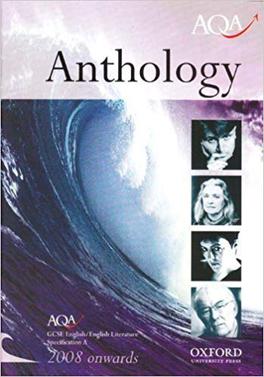 However, the GCSE anthology is always full of a fine range of great verse - modern and classic - and from a range of cultures. A number of fine British poets - including former Laureate Carol Ann Duffy as well as poets such as John Agard and Grace Nichols - have even toured UK theatres across the UK to perform to students in support of their work in the anthology and with great success.
However, the GCSE anthology is always full of a fine range of great verse - modern and classic - and from a range of cultures. A number of fine British poets - including former Laureate Carol Ann Duffy as well as poets such as John Agard and Grace Nichols - have even toured UK theatres across the UK to perform to students in support of their work in the anthology and with great success.
Even though I promote poetry to children up to the age of 11, I clearly don’t want a disconnect towards poetry to appear in teenagers onwards and for such negative attitudes to then manifest and continue through to adulthood. I’ve even overheard a number of parents at Primary school book fairs discouraging their young children from buying poetry books in preference for ‘proper books’, which I would take to be novels. And why is prose fiction considered superior to verse? Go into any bookshop and the first books you will find will be prose fiction. Next you will encounter non-fiction. The children’s section will be in the corner. But poetry? Back of the store, foot-level, near the exit/the loo! There’s the hierarchy, right there.
On one hand I’d personally like to see a compulsory GCSE poetry anthology reinstated, but equally I’d like to hope that it is balanced with creative poetry writing as well as performing taking place throughout the Secondary years, so that 11-18 yr olds realise that poetry post-Primary is not predominantly synonymous with deconstructive microscopes enquiring ‘can you spot the bathos in the final stanza, Yr 10?’ ‘Find me the consonance in the second verse and explain how it adds texture and extra musicality to what the poet..’ For me, this is good stuff, but adolescents surely need a much wider experience of verse.
Poetry gives us licence to open up. To explore. To look within - and without - and to make meaning, to reflect, to give thought to. Prose doesn’t encourage this so readily. The process of writing poetry invites the poet to dig around a bit. To make sense of and reimagine the world. Teenagers need what poetry offers: a cathartic, intellectual and aesthetic experience, and moreover, they need to it for reasons of wellbeing.
To counterbalance the academic approach to verse, I hope that Secondary schools are finding time and resources within the academic year to encourage some creative extra-curricular approaches, say some spoken word/slam events to take place - where poetry meets spoken word, or even hip hop and rap. I hope that some schools are able to offer poetry as well as creative writing classes after hours, or during lunchtimes - and that adult poets and writers are invited in to read or perform and discuss their work and run workshops.
I used to have a rather arrogant, superior take on creative writing in Secondary schools, believing that 10-11 yr olds in Primary Yrs 5 and 6 were actually far more innovative in their writing than say their 13-14 yr old counterparts in Secondary. I had a Head of English visit one of my Yr 5 workshops in a Primary school outside Leicester. She was floored by what the 9 and 10 yr olds were writing. ‘Wow’ she said, ‘this is most impressive. I wouldn’t get anything like this standard of writing out of my Yr 8s.’ Whilst that was great to hear, I clearly don’t want this to be the case. Kate Clanchy MBE (poet, educationalist, and poet-in-residence at Oxford Spires Academy) has shown us repeatedly over the last decade that teenagers from Yrs 7-13 (ie 11-18 yr olds) are capable of writing truly excellent and highly imaginative verse. Creativity doesn’t disappear in adolescence, but it certainly seems to go underground at times. Kate has totally altered my opinion with the poems by those gifted teenagers that she puts up on Twitter on a daily basis. Go on - pop to Twitter and witness the brilliance of the poems by these young writers, many of whom were not born in the UK and have English as a second or third language.
Some poets will not allow for their poetry to be used in anthologies or for examinations. Whilst it’s a compliment that an examination board considers their work to be worthy of intellectual literary analysis, it is clearly not what the poetry was written for. For no verse or fiction or non-fiction or theatre is created to be deconstructed or dissected, it’s how academia evolved in the 20th century to the point that we longer question it.
Why analyse poetry? Because of its brevity. Because it is short and concise and tends to fit on a single page. (Perfect for an anthology, academic or otherwise.) Poems can say a great deal with as few words as possible, or achieve what novelist Russell Hoban would refer to as ‘much-in-little’. Poetry is often a conscious playing with form, with language, and a philosophical reassessment of a subject. And as poet Robert Frost said (sic) ‘Poetry is a fresh look and a fresh listen.’ As poets, we weave together two disparate but wholly interconnected elements - the form and the content, the music of the language and the meaning of the words.
For me, poetry is the good stuff. Though I know even with the finest teachers, not everyone is going to turn out to be a verse-spouting, Dylan Thomas or Carol Ann Duffy promoting poetry fan. It’s not to everyone’s taste. But there’s so much great verse and of great variety, and as all us poets know, there’ll be something out there that everyone can enjoy. What’s more, as a workshopper I wholly believe that everyone - child, teen or adult - is capable of writing at least a handful of some cracking good poems - it just takes the right stimulus, the right encouragement, the right nurturing, the right time and context. A GCSE poetry anthology isn’t going to create that necessarily, as its initial function is to generate creative analysis rather than actual creative writing. But surely that anthology has become an essential rite of passage, one that will open up for all 15-16 yr olds the tool box that us poets possess - the tricks of our trade, the knowledge of how we blend words to present new ways to re-examine the world. Moreover, teenagers have much to express, though do we give them enough creative opportunities and outlets to do so? And crucially, time spent writing poetry very much informs and indeed develops and hones our prose writing skills, and makes all of us - of any age - concise, coherent and expressive communicators.
This may seem quite obvious, but to write poetry you need to read poetry. A good writer is a good reader. It wasn’t until I began writing poetry, that I began really reading it, realising there were so many forms and modes and voices, and that the more I read, as a result, the more my own writing developed. We can’t have generations of teenagers finishing poetry at age 14/15. They need to take this to 16. If we are to nurture future poets, rappers and spoken word artists (as well as fiction/non-fiction writers, playwrights and journalists), they need to have had as much experience of poetry as possible and to appreciate all the many things it can be and do.
Moreover, all A level English Literature and Language students need to have had the experience of doing a poetry anthology at GCSE. For it’s vital - absolutely essential to their maturation and development as students of English. Personally I would like to see poetry reinstated as a compulsory, non-optional element at GCSE and Secondary schools, but in conjunction with what Primary schools have been doing for a while now - a holistic and balanced approach to poetry that involves enjoying, reading, discussing, creating, writing, sharing and performing poetry - in and out of the classroom and across the whole curriculum.


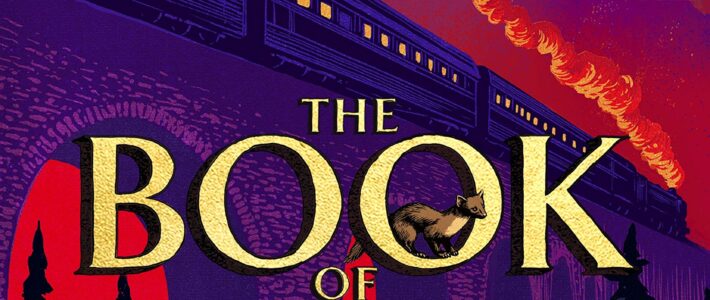
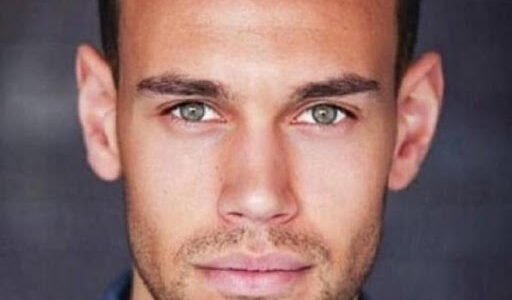
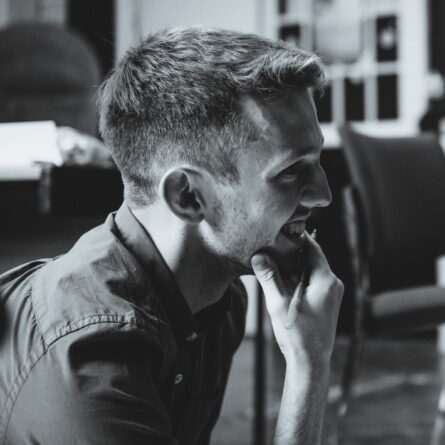 Elgan Rhys, writer-director-performer
Elgan Rhys, writer-director-performer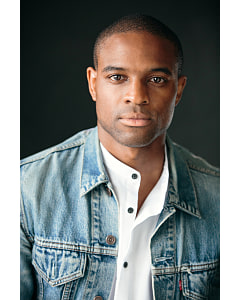 Stephan Boyce, actor
Stephan Boyce, actor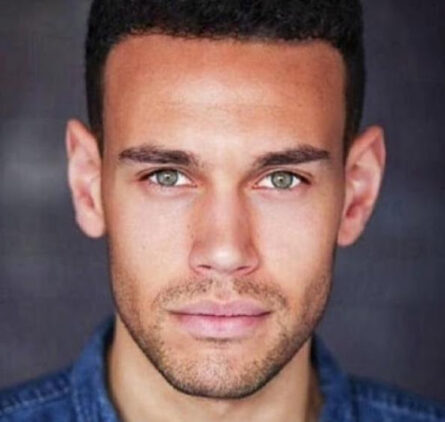 Kyle Lima, performer
Kyle Lima, performer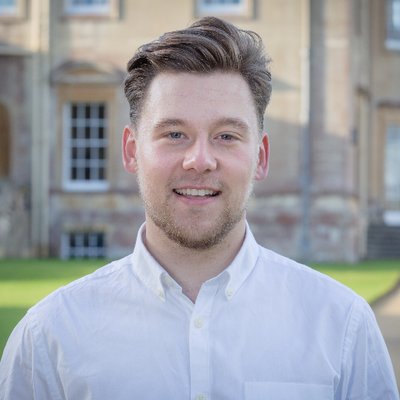 Ben Knight, baritone
Ben Knight, baritone
 As a children’s poet, workshopper, writer-in-schools as well as an ambassador for National Poetry Day, I’m concerned with how Primary-aged children engage with poetry. For me, 3-11s should be having fun with poetic language as a form of quasi-play, taking ownership of language, being creative with words, and increasingly as they age and move through Primary school, using poetry as a highly resourceful and innovative medium to explore their own thoughts, experiences, emotions and the many facets of the Primary curriculum.
As a children’s poet, workshopper, writer-in-schools as well as an ambassador for National Poetry Day, I’m concerned with how Primary-aged children engage with poetry. For me, 3-11s should be having fun with poetic language as a form of quasi-play, taking ownership of language, being creative with words, and increasingly as they age and move through Primary school, using poetry as a highly resourceful and innovative medium to explore their own thoughts, experiences, emotions and the many facets of the Primary curriculum. However, the GCSE anthology is always full of a fine range of great verse - modern and classic - and from a range of cultures. A number of fine British poets - including former Laureate Carol Ann Duffy as well as poets such as John Agard and Grace Nichols - have even toured UK theatres across the UK to perform to students in support of their work in the anthology and with great success.
However, the GCSE anthology is always full of a fine range of great verse - modern and classic - and from a range of cultures. A number of fine British poets - including former Laureate Carol Ann Duffy as well as poets such as John Agard and Grace Nichols - have even toured UK theatres across the UK to perform to students in support of their work in the anthology and with great success.